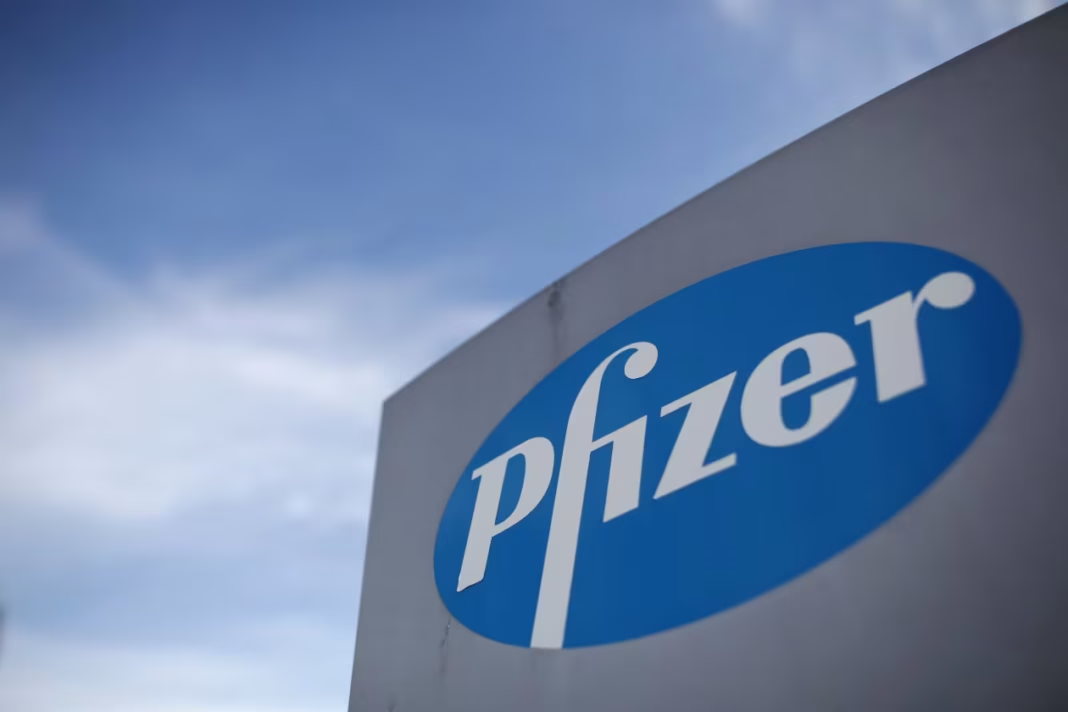In the ever-evolving world of pharmaceuticals, setbacks are inevitable. However, when those setbacks lead to significant financial ramifications, the ripple effects are felt far and wide.
Pfizer Inc., one of the world’s largest pharmaceutical companies, is currently grappling with such a situation.
The company’s stock, which has been a long-time favorite for investors, is struggling after it recently announced the halting of its experimental weight-loss drug, danuglipron.
This decision has sent shockwaves through the market, significantly affecting Pfizer’s financial standing and investor sentiment.
Let’s take a closer look at the factors behind the stock struggles and what this could mean for the company going forward.
The Setback: Halting Danuglipron’s Development
Pfizer’s weight-loss drug, danuglipron, was part of a promising class of medications designed to address the global obesity crisis.
As the obesity epidemic continues to rise, especially in developed nations, weight-loss drugs have become a hot commodity, with many pharmaceutical companies pouring resources into their development.
Danuglipron, an oral medication, was touted as one of Pfizer’s key players in this competitive market.
However, Pfizer’s promising development came to a screeching halt after a potential drug-induced liver injury was reported in a clinical trial participant.
While the liver injury was found to be reversible upon discontinuation of the treatment, the company decided to err on the side of caution and halted the development of the drug entirely.
The liver enzyme elevations seen in the trial were similar to those observed in other drugs in the same class, but the severity raised concerns that were deemed too risky to move forward.
The Financial Fallout: A 17% Decline
Pfizer’s decision to pull the plug on danuglipron has sent its stock into a downward spiral. In 2025 alone, Pfizer’s stock has seen a 17% decline, and it has now dropped a staggering 64% from its peak value in December 2021.
This drastic decline is a direct reflection of investor anxiety over the company’s position in the weight-loss drug market.
The halt of the drug’s development is seen as a significant blow to Pfizer’s revenue pipeline, especially considering the immense potential the weight-loss market holds.
According to some estimates, the global weight-loss drug market could be worth billions in the coming years, and Pfizer’s inability to tap into that potential is worrisome for shareholders.
The Competition: Eli Lilly and Novo Nordisk Gain Ground
While Pfizer’s stock struggles, its competitors are seizing the opportunity. Eli Lilly and Novo Nordisk, two of Pfizer’s main rivals in the weight-loss drug market, have seen their stock prices rise in the wake of Pfizer’s setback.
Both companies have made significant advancements in the development of their own weight-loss drugs, such as Eli Lilly’s Zepbound and Novo Nordisk’s Wegovy.
These competitors have positioned themselves as leaders in the market, benefiting from Pfizer’s misstep. Investors are now more likely to turn to Eli Lilly and Novo Nordisk for stability in the weight-loss drug sector, further eroding Pfizer’s position.
The Future of Pfizer: What’s Next?
Despite the setback with danuglipron, Pfizer is not giving up on its ambitions to tap into the weight-loss drug market. The company is still actively pursuing other treatments for obesity and related metabolic diseases.
One such treatment is PF-07976016, a daily pill that works by inhibiting the GIP receptor. This drug offers a distinct mechanism compared to the GLP-1 receptor agonists used by Eli Lilly and Novo Nordisk, and it remains in clinical trials.
However, Pfizer’s recent failure raises questions about the company’s future in the weight-loss space. Given the competitive landscape and the success of its rivals, Pfizer may need to rethink its strategy.
The company could consider acquiring smaller biotech firms that specialize in weight-loss treatments or forge new partnerships to strengthen its pipeline.
The Bigger Picture: Pfizer’s Stock Performance Beyond Weight-Loss Drugs
While the failure of danuglipron has undoubtedly affected Pfizer’s stock price, it’s important to note that the company’s troubles in the weight-loss market are just one aspect of its overall performance.
Pfizer has faced challenges in other areas as well, including its COVID-19 vaccine sales, which have started to taper off as the pandemic subsides. The company will need to diversify its revenue streams and find new growth areas to regain investor confidence.
Pfizer has also been dealing with patent expirations for some of its blockbuster drugs, which further adds to the pressure. As generic alternatives to these drugs enter the market, Pfizer will need to rely on its pipeline of new drugs to maintain revenue growth.
A Crucial Turning Point for Pfizer
Pfizer’s decision to halt the development of danuglipron has marked a pivotal moment for the company.
Its stock struggles are not merely a result of the failure of one drug, but part of a larger narrative about the company’s ability to navigate a changing pharmaceutical landscape. While the weight-loss drug market holds tremendous potential, Pfizer will need to regroup, reassess its strategy, and potentially seek new avenues for growth.
For investors, this setback is a reminder of the risks inherent in pharmaceutical investments.
The market has proven to be volatile, with clinical trials, regulatory hurdles, and competition playing a significant role in shaping a company’s fortunes.
As Pfizer moves forward, it will need to focus on rebuilding investor confidence, diversifying its portfolio, and staying competitive in a fast-changing industry.
Ultimately, Pfizer’s ability to bounce back from this setback will depend on its capacity to innovate and adapt.
The next few months will be crucial in determining whether the pharmaceutical giant can reclaim its position as a market leader or whether it will continue to struggle in an increasingly competitive environment.
Also Read
